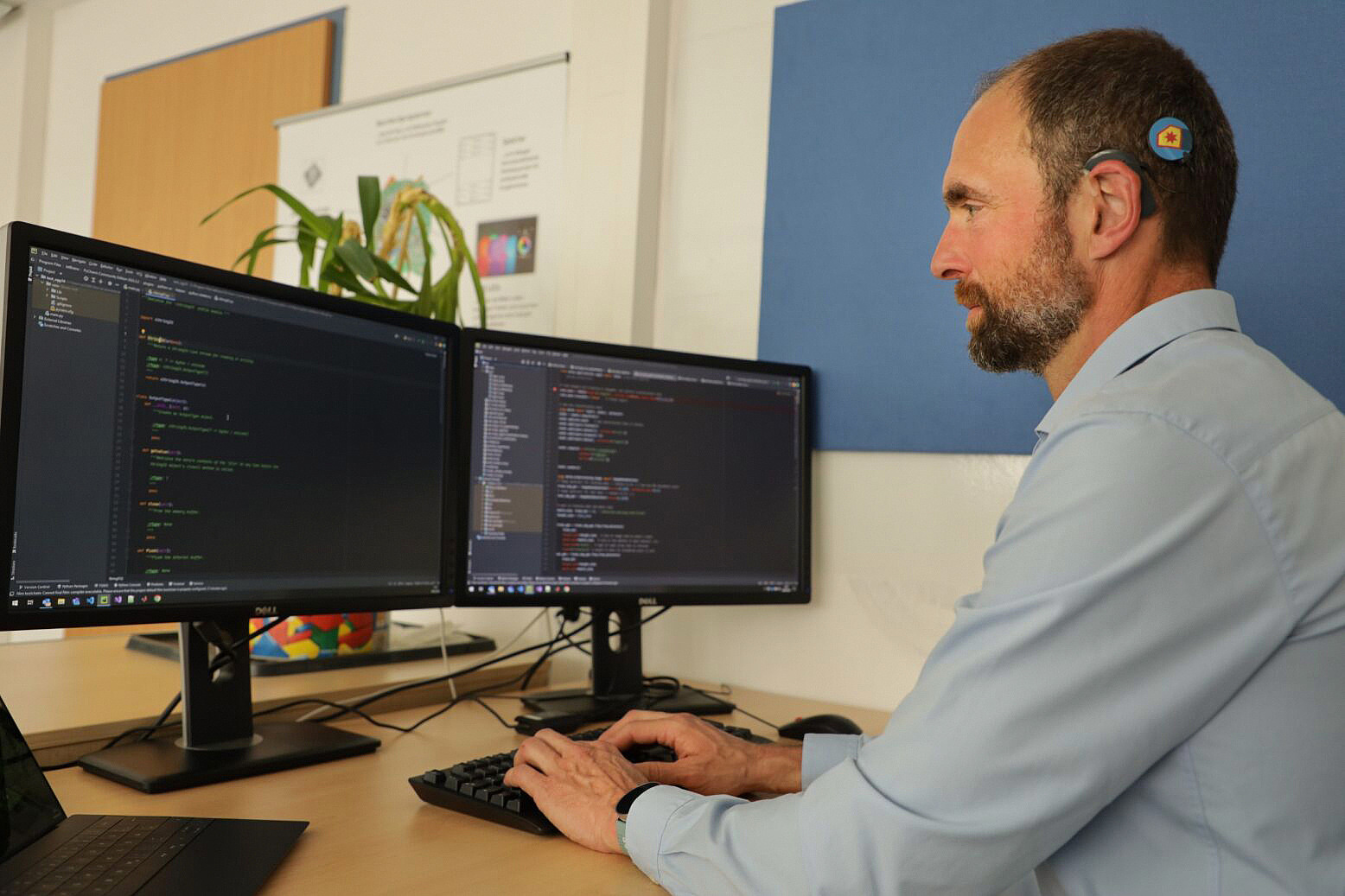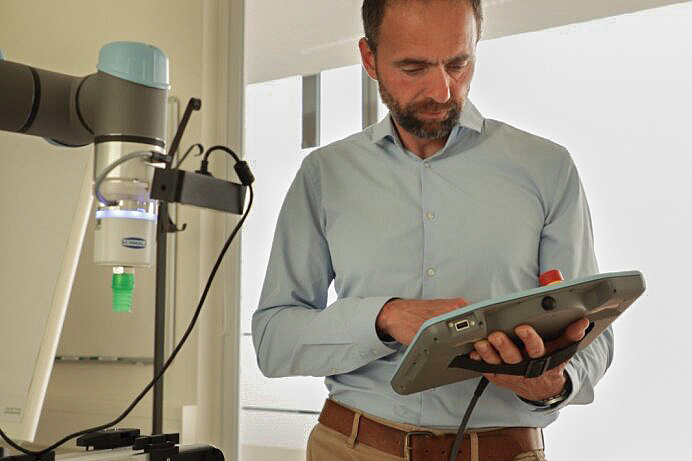JR Centre for Artificial Intelligence on Resource Limited Devices
Head of research unit
Commercial Partner
Duration
Thematic Cluster

This JR Centre is researching new methods of post-training that dynamically adapt machine learning models (AI models) directly to distributed resource-limited devices (RLDs). This should enable them to make autonomous, self-learning decisions.
AI models and algorithms are only as good as the data they have been trained with: After all, they adapt their approach based on this "wealth of experience" and make decisions that seem sensible in view of the training data. However, such models are always highly specialised: If, for example, an AI-controlled industrial robot is tasked with attaching screws and "knows" exactly how screws should look and be used, it cannot simply "rethink" on its own if it suddenly has to work with nuts instead.
In such cases of constantly changing system and environmental parameters, one speaks of "concept drift" or "model drift" and would currently have to completely retrain the underlying model in order to adapt said robot to its new work objects, for example.
However, when it comes to a network of distributed devices with limited resources, such as a network of specialised robots, this is not only time-consuming and cost-intensive, but also a particularly complex undertaking. Typically, such re-training requires a constant exchange of all sensors with a powerful cloud system, which adapts or re-trains the model when the data changes and then redistributes the model to all participating devices. It becomes even more difficult if certain data cannot or must not be sent to the server in the cloud, for example for data protection reasons in the healthcare sector.
The JR Centre team is therefore developing a methodical and efficient framework to distribute models in industrial applications to RLDs and to be able to adapt them at runtime instead of having to use powerful server systems with large memory and high computing capacities for complex re-training, as is currently the case. In addition, in cooperation with the CD Laboratory for Embedded Machine Learning (see links), an evaluation of the adaptation and optimisation of various models with regard to their ability to run on RLDs is to be carried out.
The overall objective of the JR Centre is therefore to retrain AI algorithms on embedded systems for changing environments and thus enormously multiply the possible applications of AI: This enables the use of AI systems on distributed microprocessor and microcontroller systems with limited resources while maintaining privacy and real-time requirements.

Christian Doppler Forschungsgesellschaft
Boltzmanngasse 20/1/3 | 1090 Wien | Tel: +43 1 5042205 | Fax: +43 1 5042205-20 | office@cdg.ac.at


